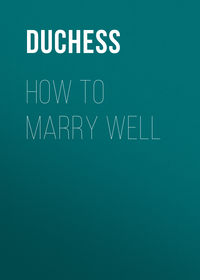 полная версия
полная версияAiry Fairy Lilian
"You may have anything you wish that I can give you."
"What a noble offer! – Are you going to waste much more time over your tiresome letters?" glancing with pretty impertinence at the half-finished sheets lying on the table near her: "I suppose they are all business, or love, or suchlike rubbish! Well, good-bye, Guardy, I must go and finish the drying of my hair; you will find me in the garden when you come to the end of your last billet-doux."
So saying, she trips away from him down the handsome oak-paneled room, and disappears through the doorway that leads into the hall.
Where she goes the sunshine seems to follow her. To Guy's fancy it appears as though a shadow has fallen suddenly into the room, when the last glimpse of her yellow hair has vanished out of sight. With a rather abstracted air he betakes himself once more to his writing, and tries to forget her.
But somehow the impetus that urged him on half an hour ago is wanting; the spur to his industry has lost its sharpness; and presently, throwing down his pen with an impatient gesture, he acknowledges himself no longer in the mood for work.
What a child she is! – again the thought occurs to him; – yet with what power to torture! To-day all sweetness and honeyed gayety, to-morrow indifferent, if not actually repellent. She is an anomaly, – a little frail lily beset with thorns that puts forth its stings to wound, and probe, and madden, when least expected.
Only yesterday – after an hour's inward conflict – he had convinced himself of her love for her cousin Archibald, with such evident pleasure did she receive his very marked attentions. And now, – to-day, – surely if she loved Chesney her eyes could not have dwelt so kindly upon another as they did a few minutes since upon her guardian. With what a pretty grace she had demanded that blue forget-me-not and placed it in the bosom of her dress! With what evident sincerity she had hinted at her wish to see him in the garden when his work should be over! Perhaps – perhaps —
Of late a passionate desire to tell her of the affection with which she has inspired him consumes him daily, – hourly; but a fear, a sad certainty of disappointment to follow on his declaration has hitherto checked the words that so often tremble on his lips. Now the unwonted gentleness of her manner tempts him to follow her and put his fate "to the touch," and so end all the jealous anguish and heart-burnings that torment him all day long.
Quitting his sanctum, he crosses the hall, and enters the drawing-room, where he finds Florence alone.
She is, as usual, bending industriously over her crewel work; the parrot's tail is now in a high state of perfection, not a color in the rainbow being missing from it. Seeing Guy, she raises her head and smiles upon him sweetly, blandly, invitingly.
"Where is Lilian?" asks Guy, abruptly, with all the tactless truthfulness of a man when he has one absorbing object in view.
Miss Beauchamp's bland smile freezes on her lips, and shows itself no more. She makes answer, nevertheless, in an unmoved tone:
"Where she always is, – in the garden with her cousin, Mr. Chesney."
"Always?" says Guy, lightly, though in reality his face has grown suddenly pale, and his fingers clinch involuntarily.
"Well," in her unchangeable placid staccato voice, "generally. He seems very épris with her, and she appears to receive his admiration favorably. Have you not noticed it?"
"I cannot say I have."
"No?" – incredulously – "how extraordinary! But men are proverbially dull in the observation of such matters as love-affairs. Some, indeed," with slow meaning, "are positively blind."
She lays her work upon the table before her and examines it critically. She does not so much as glance at her victim, though secretly enjoying the knowledge that he is writhing beneath the lash.
"Chesney would be a good match for her," says Guy, with the calmness of despair. But his calmness does not deceive his companion.
"Very good. The Park, I am told, is even larger than Chetwoode. You, as her guardian, should, I think, put carefully before her all the advantages to be derived from such a marriage."
Here she smooths out her parrot, and, turning her head slightly to one side, wonders whether a little more crimson in the wings would not make them look more attractive. No, perhaps not: they are gaudy enough already, – though one often sees – a parrot – with —
"I don't believe mere money would have weight with Lilian," Guy breaks in upon her all-important reverie, with a visible effort.
"No? Perhaps not. But then the Park is her old home, and she, who professes such childish adoration for it, might possibly like to regain it. You really should speak to her, Guy. She should not be allowed to throw away such a brilliant chance, when a few well-chosen words might bias her in the right direction."
Guy makes no reply, but, stepping on to the balcony outside, walks listlessly away, his heart in a tumult of fear and regret, while Miss Beauchamp, calmly, and with a certain triumph, goes on contentedly with her work. A nail in Lilian's coffin has, she hopes, been driven, and sews her hopes into the canvas beneath her hand, as long ago the Parisian women knitted their terrible revenge and cruel longings into their children's socks, whilst all the flower and beauty and chivalry of France fell beneath the fatal guillotine.
Guy, wandering aimlessly, full of dismal thought, follows out mechanically his first idea, and turns in the direction of the garden, the spot so beloved by his false, treacherous little mistress.
In the distance he sees her; she is standing motionless in the centre of a grassplot, while behind her Chesney is busily engaged tying back her yellow hair with a broad piece of black ribbon she has evidently given him for the purpose. He has all her rich tresses gathered together in one, and is lingering palpably over his task. In his coat is placed conspicuously the blue forget-me-not begged of Guy by Lilian only a few minutes ago as though her heart were set upon its possession.
"Coquette," mutters Chetwoode between his teeth.
"Not done yet?" asks the coquette at this moment of her cousin, giving her head a little impatient shake.
"Yes, just done," finishing up in a hurry the somewhat curious bow he is making.
"Well, now run," says Lilian, "and do as I bade you. I shall be here on this spot when you return. You know how I hate waiting: so don't be long, – do you hear?"
"Does that mean you will be impatient to see me again?"
"Of course," laughing. "I shall be dying to see you again, longing, pining for your return, thinking every minute an hour until you come back to me."
Thus encouraged, Archibald quickly vanishes, and Guy comes slowly up to her.
"I think you needn't have put that flower in Chesney's coat," he says, in an aggrieved tone. "I had no idea you meant it for his adornment."
"Is it in his coat?" As she makes this mean reply she blushes a rich warm crimson, so full of consciousness that it drives Guy absolutely wild with jealousy. "Yes, now I remember," she says, with an assumption of indifference; "he either took it from me, or asked me for it, I quite forget which."
"Do you?"
"I do," resenting his manner, which borders on disbelief, and is in her eyes highly objectionable. "Why should I trouble myself to recollect such trifles?"
After a pause, and with a distinct effort, Chetwoode says:
"You were foolishly prejudiced against your cousin before his arrival. I am glad you have learned to be civil to him."
"More than that, I have learned to like him very much indeed. He is quite charming, and not in the least exigeant, or difficile," this rather pronounced. "Besides, he is my cousin, and the master of my old home. Whenever I think of the dear Park I naturally think of him, until now they are both associated in my mind: this adds to my liking."
Guy's heart sinks within him as he remembers Florence's words and now hears Lilian's own confession. He glances at her despairingly. She is picking a flower to pieces, and as she does so a little soft sigh escapes her. Is it for her lost home? Is she already dreaming of an hour when she may return to it once more as its happy mistress? Is she mercenary, as Florence hinted? or is it homesickness that is tempting her? or can it be that at heart she loves this cousin?
"It is the same with all women," he says bitterly; "the last comer is always the best, the newest face the dearest."
"I do not understand you," – with cold reproof; "surely you are wandering from the subject: we were saying nothing about last comers or new faces. If you happen to be in a bad temper, Sir Guy, I really think it a little hard that you should come here to inflict it upon me."
"I am not in a bad temper," – indignantly.
"No? It seems very like it," says Miss Chesney. "I can't bear cross people: they are always saying unpleasant as well as unmeaning things. New faces, indeed! I really wish Archibald would come; he is always agreeable, and never starts distasteful topics. Ah, here he is! Archie, how long you have been! I thought you were never coming! Sir Guy is in one of his terrible moods, and has frightened me out of my life. I was in danger of being lectured off the face of the earth. No woman should be pitied but she that has a guardian! You have come to my rescue barely in time: another minute, and you would have found only a lifeless Lilian."
Sir Guy, black with rage, turns aside. Archibald, ignorant of the storm brewing, sinks beside her contentedly upon the grass.
CHAPTER XVI
"O spirit of love, how fresh and quick thou art!" – Shakespeare.
It is the gloaming, – that tenderest, fondest, most pensive time of all the day. As yet, night crouches on the borders of the land, reluctant to throw its dark shadow over the still smiling earth, while day is slowly, sadly receding. There is a hush over everything; above, on their leafy perches, the birds are nestling, and crooning their cradle songs; the gay breeze, lazy with its exertions of the day, has fallen asleep, so that the very grasses are silent and unstirred. An owl in the distance is hooting mournfully. There is a serenity on all around, an all-pervading stillness that moves one to sadness and fills unwittingly the eyes with tears. It is the peace that follows upon grief, as though the busy world, that through all the heat and turmoil of the day has been weeping and groaning in anguish, has now for a few short hours found rest.
The last roses of summer in Mrs. Arlington's garden, now that those gay young sparks the bees have deserted them, are growing drowsy, and hang their heavy heads dejectedly. Two or three dissipated butterflies, fond of late hours and tempted by the warmth, still float gracefully through the air.
Cecilia, coming down the garden path, rests her arms upon her wicket gate and looks toward Chetwoode.
She is dressed in an exquisite white cambric, fastened at the throat by a bit of lavender ribbon; through her gown here and there are touches of the same color; on her head is a ravishing little cap of the mob description, that lends an additional charm to her face, making her seem, if possible, more womanly, more lovable than ever.
As she leans upon the gate a last yellow sunbeam falls upon her, peeps into her eyes, takes a good-night kiss from her parted lips, and, descending slowly, lovingly, crosses her bosom, steals a little sweetness from the white rose dying on her breast, throws a golden shade upon her white gown, and finally dies chivalrously at her feet.
But not for the dear devoted sunbeam does that warm blush grow and mantle on her cheek; not for it do her pulses throb, her heart beat fast. Toward her, in his evening dress, and without his hat, regardless of consequences, comes Cyril, the quickness of his step betraying a flattering haste. As yet, although many weeks have come and gone since their first meeting, no actual words of love have been spoken between them; but each knows the other's heart, and has learned that eyes can speak a more eloquent language, can utter tenderer thoughts, than any the lips can frame.
"Again?" says Cecilia, softly, a little wonder, a great undisguised gladness, in her soft gray eyes.
"Yes; I could not keep away," returns he, simply.
He does not ask to enter, but leans upon the gate from his side, very close to her. Most fair men look well in evening clothes; Cyril looks downright handsome: his blonde moustache seems golden, his blue eyes almost black, in the rays of the departing sun: just now those eyes are filled with love and passionate admiration.
Her arms, half bare, with some frail shadowy lace falling over them, look rounded and velvety as a child's in the growing dusk; the fingers of her pretty, blue-veined hands are interlaced. Separating them, Cyril takes one hand between both his own and strokes it fondly, silently, yet almost absently.
Suddenly raising his head, he looks at her, his whole heart in his expression, his eyes full of purpose. Instinctively she feels the warmth, the tenderness of his glance, and changes from a calm lily into an expectant rose. Her hand trembles within his, as though meditating flight, and then lies passive as his clasp tightens firmly upon it. Slowly, reluctantly, as though compelled by some hidden force, she turns her averted eyes to his.
"Cecilia," murmurs he, imploringly, and then – and then their lips meet, and they kiss each other solemnly, with a passionate tenderness, knowing it is their betrothal they are sealing.
* * * * * * *"I wish I had summoned courage to kiss you a week ago," he says, presently. He is inside the gate now, and seems to have lost in this shamefully short time all the hesitation and modesty that a few minutes ago were so becoming. His arm is around her; even as he makes this risqué remark, he stoops and embraces her again, without even having the grace to ask permission, while she (that I should live to say it of Cecilia!) never reproves him.
"Why?" she asks, smiling up at him.
"See how I have wasted seven good days," returns he, drinking in gladly all the beauty of her face and smile. "This day last week I might have been as happy as I am now, – whereas I was the most miserable wretch alive, the victim of suspense."
"You bore your misery admirably: had you not told me, I should never have guessed your wretchedness. Besides, how do you know I should have been so kind to you seven long days ago?"
"I know it, – because you love me."
"And how do you know that either?" asks she, with new-born coquetry that sits very sweetly upon her. "Cyril, when did you begin to love me?"
"The very moment I first saw you."
"No, no; I do not want compliments from you: I want the very honest truth. Tell me."
"I have told you. The honest truth is this. That morning after your arrival when I restored your terrier to you, I fell in love with you: you little thought then, when I gave your dog into your keeping, I was giving my heart also."
"No," in a low, soft voice, that somehow has a smile in it, "how could I? I am glad you loved me always, – that there was no time when I was indifferent to you. I think love at first sight must be the sweetest and truest of all."
"You have the best of it, then, have you not?" with a rather forced laugh. "Not only did I love you from the first moment I saw you, but you are the only woman I ever really cared for; while you," with some hesitation, and turning his eyes steadily away from hers, "you – of course – did love – once before."
"Never!"
The word comes with startling vehemence from between her lips, the new and brilliant gladness of her face dies from it. A little chill shudder runs through all her frame, turning her to stone; drawing herself with determination from his encircling arms, she stands somewhat away from him.
"It is time I told you my history," she says, in cold, changed tones, through which quivers a ring of pain, while her face grows suddenly as pale, as impenetrable as when they were yet quite strangers to each other. "Perhaps when you hear it you may regret your words of to-night." There is a doubt, a weariness in her voice that almost angers him.
"Nonsense!" he says, roughly, the better to hide the emotion he feels; "don't be romantic; nobody commits murder, or petty larceny, or bigamy nowadays, without being found out; unpleasant mysteries, and skeletons in the closet have gone out of fashion. We put all our skeletons in the Times now, no matter how we may have to blush for their nakedness. I don't want to hear anything about your life if it makes you unhappy to tell it."
"It doesn't make me unhappy."
"But it does. Your face has grown quite white, and your eyes are full of tears. Darling, I won't have you distress yourself for me."
"I have not committed any of the crimes you mention, or any other particular crime," returns she, with a very wan little smile. "I have only been miserable ever since I can remember. I have not spoken about myself to any one for years, except one friend; but now I should like to tell you everything."
"But not there!" holding out his hands to her reproachfully. "I don't believe I could hear you if you spoke from such a distance." There is exactly half a yard of sward between them. "If you are willfully bent on driving us both to the verge of melancholy, at least let us meet our fate together."
Here he steals his arm round her once more, and, thus supported, and with her head upon his shoulder, she commences her short story:
"Perhaps you know my father was a Major in the Scots Greys; your brother knew him: his name was Duncan."
Cyril starts involuntarily.
"Ah, you start. You, too, knew him?"
"Yes, slightly."
"Then," in a curiously hard voice, "you knew nothing good of him. Well," with a sigh, "no matter; afterward you can tell me what it was. When I was eighteen he brought me home from school, not that he wanted my society, – I was rather in his way than otherwise, and it wasn't a good way, – but because he had a purpose in view. One day, when I had been home three months, a visitor came to see us. He was introduced to me by my father. He was young, dark, not ugly, well-mannered," here she pauses as though to recover breath, and then breaks out with a passion that shakes all her slight frame, "but hateful, vile, loathsome."
"My darling, don't go on; I don't want to hear about him," implores Cyril, anxiously.
"But I must tell you. He possessed that greatest of all virtues in my father's eyes, – wealth. He was rich. He admired me; I was very pretty then. He dared to say he loved me. He asked me to marry him, and – I refused him."
As though the words are forced from her, she utters them in short, unequal sentences; her lips have turned the color of death.
"I suppose he went then to my father, and they planned it all between them, because at this time he – that is, my father – began to tell me he was in debt, hopelessly, irretrievably in debt. Among others, he mentioned certain debts of (so-called) honor, which, if not paid within a given time, would leave him not only a beggar, but a disgraced one upon the face of the earth; and I believed him. He worked upon my feelings day by day, with pretended tears, with vows of amendment. I don't know," bitterly, "what his share of the bargain was to be, but I do know he toiled for it conscientiously. I was young, unusually so for my age, without companions, romantic, impressionable. It seemed to me a grand thing to sacrifice myself and thereby save my father; and if I would only consent to marry Mr. Arlington he had promised not only to avoid dice, but to give up his habits of intemperance. It is an old story, is it not? No doubt you know it by heart. Crafty age and foolish youth, – what chance had I? One day I gave in, I said I would marry Mr. Arlington, and he sold me to him three weeks later. We were married."
Here her voice fails her again, and a little moan of agonized recollection escapes her. Cyril, clasping her still closer to him, presses a kiss upon her brow. At the sweet contact of his lips she sighs, and two large tears gathering in her eyes roll slowly down her cheeks.
"A week after my wretched marriage," she goes on, "I discovered accidentally that my father had lied to me and tricked me. His circumstances were not so bad as he had represented to me, and it was on the condition that he was to have a certain income from Mr. Arlington yearly that he had persuaded me to marry him. He did not long enjoy it. He died," slowly, "two months afterward. Of my life with – my husband I shall not tell you; the recital would only revolt you. Only to think of it now makes me feel deadly ill; and often from my dreams, as I live it all over again, I start, cold with horror and disgust. It did not last long, which was merciful: six months after our marriage he eloped with an actress and went to Vienna."
"The blackguard! the scoundrel!" says Cyril, between his teeth, drawing his breath sharply.
"I never saw him again. In a little while I received tidings of his death: he had been stabbed in a brawl in some drinking-house, and only lived a few hours after it. And I was once more free."
She pauses, and involuntarily stretches forth both her hands into the twilight, as one might who long in darkness, being thrust into the full light of day, seeks to grasp and retain it.
"When I heard of his death," she says, turning to Cyril, and speaking in a clear intense tone, "I laughed! For the first time for many months, I laughed aloud! I declared my thankfulness in a distinct voice. My heart beat with honest, undisguised delight when I knew I should never see him again, should never in all the years to come shiver and tremble in his hated presence. He was dead, and I was heartily glad of it."
She stops, in terrible agitation. An angry fire gleams in her large gray eyes. She seems for the moment to have utterly forgotten Cyril's nearness, as in memory she lives over again all the detested past. Cyril lays his hand lightly upon her shoulder, her eyes meet his, and then the anger dies from them. She sighs heavily, and then goes on:
"After that I don't know what happened for a long time, because I got brain-fever, and, but for one friend who all through had done his best for me, I should have died. He and his sister nursed me through it, and brought me back to life again; but," mournfully, "they could not restore to me my crushed youth, my ruined faith, my girlish hopes. A few months had changed me from a mere child into a cold, unloving woman."
"Don't say that," says Cyril, gently.
"Until now," returns she, looking at him with eyes full of the most intense affection; "now all is different."
"Beloved, how you have suffered!" he says, pressing her head down again upon his breast, and caressing with loving fingers her rich hair. "But it is all over, and if I can make you so, you shall be happy in the future. And your one friend? Who was he?"
She hesitates perceptibly, and a blush creeping up dyes her pale face crimson.
"Perhaps I know," says Cyril, an unaccountable misgiving at his heart. "Was it Colonel Trant? Do not answer me if you do not wish it," very gently.
"Yes, it was he. There is no reason why I should not answer you."
"No?"
"No."
"He asked Guy to let you have the cottage?"
"Yes; I had wearied of everything, and though by some chance I had come in for all Mr. Arlington's property, I only cared to go away and hide myself somewhere where I should find quiet and peace. I tried several places, but I was always restless until I came here." She smiles faintly.
Cyril, after a pause, says, hesitatingly:
"Cecilia, did you ever care for – for – Trant?"
"Never: did you imagine that? I never cared for any one but you; I never shall again. And you, Cyril," the tears rushing thickly to her eyes, "do you still think you can love me, the daughter of one bad man, the wife of another? I can hardly think myself as good as other women when I remember all the hateful scenes I have passed through."
"I shall treat you to a crowning scene if you ever dare say that again," says Cyril, whose spirits are rising now she has denied having any affection for Trant. "And if every relation you ever had was as bad as bad could be, I should adore you all the same. I can't say any more."









